Gambling Addiction: Signs, Treatment, and Help in India
If gambling has become a problem, please seek help. Our team of experts and the author of the Aviator Game portal provide reliable information about the signs of gambling addiction and available resources in India. Please play Responsible Gaming
What is gambling addiction?
Gambling addiction (pathological gambling) is classified by the World Health Organization as a mental disorder. According to research by the National Institute of Mental Health and Neurosciences (NIMHANS), this condition affects 0.5-1% of the adult population in India.
Types of gambling addiction
Compulsive gambling Complete inability to control the urge to gamble, regardless of the consequences. The gambler continues to place bets, whether they are winning or losing.
Intermittent addiction Compulsive behavior occurs only during certain periods. The person may appear to be in control most of the time, but symptoms appear when gambling begins.
Problem behavior Gambling habits interfere with normal life but have not yet reached the level of compulsion. The person is aware of the problem but cannot completely control their behavior.
Signs and symptoms of gambling addiction
According to the Diagnostic and Statistical Manual of Mental Disorders (DSM-5), a diagnosis is made when at least 4 of the following criteria are present for 12 months:
1. Tolerance to betting
The need to gamble for larger amounts to achieve the desired excitement.
Real-life case: Ravi, a gambler from Bangalore, has been playing the Aviator game for six months. He started betting 100 rupees in the first month, and after five months, he needed to bet 5,000 rupees to get the dopamine rush he craved.
2. First symptoms of gambling withdrawal
Emotional waves (anxiety and irritability) when trying to break away from the game.
Physical symptoms include excessive sweating, shaking hands, insomnia, and eating disorders (loss of appetite).
3. Partial or complete loss of control and unsuccessful attempts to stop playing
Loss of control and self-control, inability to stop playing and stop at the right time.
4. Endless thoughts about the game
You constantly think about the game, how to find money, or how to win. You constantly think about strategy and analyze rounds; the game is literally in front of your eyes.
5. You escape into the game to cope with dysphoria and avoid problems
The game has replaced real life, friends, and work. You avoid solving life’s problems, hoping that winning the game will solve all your problems.
6. Constant attempts to win back your losses and come out ahead
Losing money makes you feel guilty or anxious, which motivates you to win back your losses and at least break even.
7. Manipulation, lying to loved ones, and stealing.
In order to get more chances to gamble, you hide your motives, deceive and manipulate your family and loved ones, and try to find more money to gamble with, borrowing from banks, friends, and loved ones.
8. Your relationships and family are falling apart
Loss of significant relationships, jobs, educational or career opportunities due to gaming.
9. Financial dependence
Turning to others for money to solve financial problems caused by gambling.
Causes of addiction
Biological factors
Neurochemical changes Research shows that winning activates the brain’s reward system, releasing dopamine in a similar way to drugs.
Genetic predisposition Twin studies show that the heritability of gambling addiction is 50-60%.
Neurotransmitter deficiency Low levels of serotonin and norepinephrine are associated with impulsive behavior.
Psychological factors
Cognitive distortions
Gambler’s fallacy: the belief that past results influence future outcomes
Illusion of control: overestimating one’s ability to influence the outcome
Selective memory: remembering wins and forgetting losses
Comorbid disorders
Depression (75% of cases)
Anxiety disorders (60% of cases)
Substance use disorders (25% of cases)
Social factors
Cultural characteristics of India
Traditional gambling during festivals
Social acceptability of “smart investing”
Influence of cricket and sports betting
Stress and social isolation
High stress levels in the IT industry
Urbanization and loss of social connections
Economic pressure in an inflationary environment
Myths and facts about gambling addiction
MYTH vs FACT
MYTH: Gambling addiction is simply a lack of willpower. FACT:
It is a recognized medical condition with a biological basis
MYTH: Gamers can easily stop if they want to FACT: Addiction changes the brain chemistry, making it extremely difficult to stop
MYTH: Gaming addiction only affects poor people FACT: Addiction can develop in people of any socioeconomic status
MYTH: If a gambler can afford to lose, it’s not a problem FACT: The problem is not the amount of money lost, but the inability to control behavior
MYTH: Gamblers’ partners should pay their debts FACT: Paying off debts only exacerbates the problem and is a form of enabling
MYTH: If a problem gambler decides to pay off their debts, it means they are recovering. FACT: Promises to pay off debts are often a manipulative tactic to get money.
Treatment and help
Professional help
Cognitive behavioral therapy (CBT) The most effective treatment for gambling addiction. Success rate: 65-85% of cases.
Medication
Naltrexone: reduces the urge to gamble
Antidepressants: for treating co-occurring depression
Mood stabilizers: for bipolar disorder
Group therapy Provides support from people with similar problems.
Self-help
Immediate actions when you feel the urge to gamble:
Call a hotline or a friend
Engage in physical activity
Use the “delay” technique – wait 30 minutes
Remind yourself of the consequences of gambling
Long-term strategies:
Install programs that block gambling sites
Transfer financial control to a trusted person
Develop new hobbies and interests
Learn stress management techniques
Help in India
Government Medical Centers
🏥 NIMHANS in Bangalore
Official website: nimhans.ac.in
This is a national institute in India in the field of mental health and neurobiology. It accepts patients with severe forms of gambling addiction for outpatient or inpatient treatment.
Phone: +91-80-26995000
Additional phone: +91-80-26995200 (Substance Abuse Treatment Unit)
Email: dir@nimhans.ac.in
Address: Hosur Road, Bangalore, India, Postal Code 560029

🏥 AIIMS in New Delhi
Official website: aiims.edu
The All India Institute of Medical Sciences has a department specialising in counselling for gambling addiction.
Phone: +91-11-26588500
Additional phone: +91-11-26593309
Email: deanacademics@aiims.ac.in
Address: Ansari Nagar, New Delhi, 110029
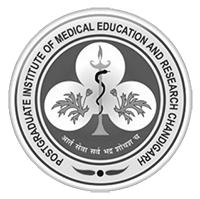
🏥 PGI in Chandigarh
Post Graduate Institute of Medical Education and Research
Address: Sector 12, Chandigarh 160012
Main line: +91-172-2755555
Psychiatry: +91-172-2755093
Email: director@pgimer.edu.in
Website: pgimer.edu.in

🏥 IHBAS Delhi
Institute of Human Behaviour and Allied Sciences
Site: ihbas.delhi.gov.in
Address: Post Box No 9520, Jhilmil, Dilshad Garden, Delhi-110095, INDIA
Services: Addiction Center

🏥 Lokmanya Tilak Hospital Mumbai
Sion Hospital – Psychiatric Ward
Address: Sion, Mumbai 400022
Psychiatry: +91-22-24076777
Services: Outpatient consultations
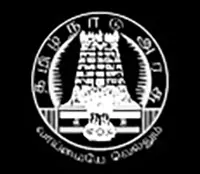
🏥 Institute of Mental Health Chennai
Kilpauk Medical College
Address: Kilpauk, Chennai 600010
Phone: +91-44-26640500
Psychiatry: +91-44-26411841
Services: Inpatient and outpatient treatment
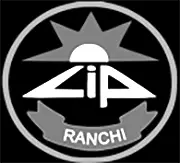
🏥 Central Institute of Psychiatry Ranchi
CIP Ranchi
Address: Kanke, Ranchi 834006
Phone: +91-651-2451115/116
Email: director@cipranchi.nic.in
Website: cipranchi.nic.in
Private Specialized Centers
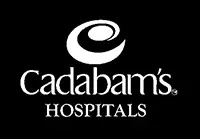
🏨 Cadabam’s Hospitals
Behavioural addiction specialists
Bangalore: +91-9741476476
Hyderabad: +91-40-40357777
Website: cadabamshospitals.com
Services: Comprehensive addiction treatment programs

🏨 Fortis Healthcare in India
Official website: fortishealthcare.com
An extensive network of medical centres throughout India specialising in psychological counselling for gamblers.
Phone: 9205010100 (Immediate and round-the-clock assistance in critical situations related to psychological disorders caused by gambling)

🏥 Alpha Healing Center – Gambling Rehab Center in India
Official website: alphahealingcenter.in
Alpha Healing Rehabilitation Center specializes in treating gambling addiction. A team of compassionate professionals is dedicated to helping people overcome their addiction and regain control of their lives.
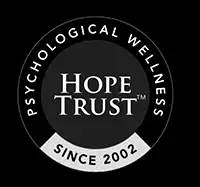
🏥 Hope Trust Rehab in India
Official website: hopetrustindia.com
The Hope Trust Rehabilitation Center in India provides assistance to all those suffering from addiction, including gambling addiction. A combination of cognitive behavioral therapy, psychological assessment and intervention, and a 12-step program have proven highly effective in helping gamblers break the cycle of addiction.

🏥 Kripa Foundation – Battling Addiction
Official website: kripafoundation.org
Fr. Joseph Pereira
Kripa means “grace.” Our foundation is based on grace, which helps people overcome their problems and regain their dignity and value. Healing is not just about eliminating physical symptoms. It is about nurturing the mind, body, and spirit together. This is the essence of our work at Kripa.
The Kripa Foundation, a 43-year-old leading non-governmental organization fighting addiction.
Residential Rehabilitation Centers

🏨 Sanctum Wellness – Rehabilitation Centre in India
Official website: sanctumwellness.org
Sanctum Wellness is a rehabilitation center for gaming addicts in India. Sanctum offers luxurious treatment for gaming addiction at affordable prices.
Call: +91 8929082073
🏨 Rehabs.in – list of 395 best rehabilitation centers in India
Official website: rehabs.in
395 best rehabilitation centers in India for the treatment of gambling addiction. On the website, you will find a complete list of gambling addiction treatment centers in India. Read reviews, contact information, and everything you need to find help for addiction and mental health disorders.
International Support Organizations
International support for players with gambling addiction

🌐 RGC – Responsible Gambling Council
Official website: responsiblegambling.org
Learn about safer gambling and how to recognize the signs of harm that may be associated with gambling. Get tools to help you talk about responsible gambling, manage your own gambling, learn how to identify signs of risky gambling behavior, and find out where you can get help.
For over 35 years, the RGC has been working to provide safeguards and support for those who gamble.

🌐 Gordon Moody
Official website: gamblingtherapy.org
A global service offered by Gordon Moody, providing free practical advice and emotional support to anyone affected by gambling.
Email: help@gordonmoody.org.uk
Regional Medical Centers
🏥 Western India

🏥 Apollo Hospitals Mumbai
Psychiatry Department
Phone: +91 22 3350 3350 / +91 22 6280 6280
Address: Tardeo, Mumbai 400034
Services: Addiction counselling

🏥 Kokilaben Dhirubhai Ambani Hospital
Phone: +91-22-4269-6969
Address: Andheri West, Mumbai
Services: Behavioral addiction treatment
🏥 East India

🏥 IPGMER Kolkata
Phone: EPABX No. 22041100
Address: SSKM Hospital, Kolkata
Services: Addiction medicine unit
🏥 North India (Rajasthan)

🏥 SMS Hospital Jaipur
Phone: 0141 256 0291
Address: JLN Marg, Jaipur
Services: Psychiatric emergency
How to help a loved one
Signs that a loved one needs help
Signs of financial problems:
Asking friends and family to borrow money
Selling household items, personal belongings, and assets
Accumulated debts and unpaid bills
Keeping finances secret
New behavior and schedule:
Spending more time on the computer or phone
Lying about plans, work, and activities
Spending less time with family and loved ones
Constant emotional mood swings
Signs of physical symptoms:
Sleepless nights and sleep disturbances
Refusal to eat, minimal food consumption, and loss of appetite
Neglect of hygiene and personal care
Stress, apathy, headaches, and digestive problems.
When and under what circumstances should you offer help?
Wait until the player is no longer in a state of excitement, in the middle of a game, or in an emotional state after losing.
Find a suitable private place and use a caring communication style, expressing your concern that the player has a problem with gambling. Do not scold or condemn them; talk about their behavior rather than getting into personal issues. Set boundaries and don’t fall for tricks, limit financial assistance, don’t help cover debts or losses.
How can family members help a gambler?
1. Preparatory process
- Gather all useful information about gambling addiction and treatment options
- Gather family members and loved ones who are willing to help
- Make a list of all the symptoms and signs of the gambler’s illness
2. How to behave with a problem gambler?
Express your love and care, and provide emotional support
Do not criticize or blame the gambler, do not make them feel guilty.
The player may deny and project negative emotions and anger, so be prepared
Offer help when the player shows remorse or emotional regret
Additional tools for prevention
Train the player in responsible gaming
Block and restrict financial resources
Remember that gambling is entertainment and treat it as such, so only spend money on entertainment that you can afford.
Control your entertainment budget; it should not exceed 5-10% of your income.
Do not be tempted to take out a loan or borrow money from friends or family.
Open a separate bank account for entertainment and allocate 5 to 10% of your income to it.
Time limits for gaming
Gaming should take no more than two hours a day, with 30-minute breaks in between.
Avoid gaming when you are stressed or late at night when you are emotionally weak or tired.
Never mix gambling with alcohol.
How to start controlling your emotions?
If you lose money, don’t try to win it back, just accept it as money spent on entertainment.
Do not confuse depression and life experiences; approach gambling when you just want to have fun or relax.
Do not take wins too seriously, just like losses, because this is primarily entertainment and not a way to invest or earn money.
IT and technical services to help with gambling addiction
Gambling blocking programs
The Cold Turkey Blocker program is available on Windows and Mac
The Freedom program is available on all devices
The Qustodio program is available on all devices
💻 BetBlocker
Clinical status: Registered UK medical charity
Coverage: 84,000+ gambling sites worldwide
Platform: Windows, Mac, iOS, Android
Setup: Free at betblocker.org
Medical approval: Royal College of Psychiatrists
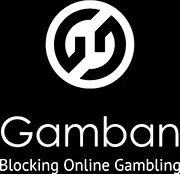
🛡️ Gamban (Clinical Level)
Cost: ₹2,000/year
Coverage: Gambling + cryptocurrency gambling
Family protection: Multi-device synchronisation
Medical feature: 24-hour cooling-off period for emergency unlock

🚫 GamBlock
Subscription cost: $50 per year
Advantages: Blocks VPN connections and connections via the TOR browser
Support: 24/7 support for gamblers
👨👩👧👦 NetNanny
Protects children from accessing gambling-related content using artificial intelligence that blocks content in real-time.
Compatibility: All types of devices
Feature: AI-powered real-time content blocking
💻 Digital Support Services

🔹 Practo Mental Health
Online consultations with psychiatrists
App: Practo
Cost: ₹500-1500 per session

🔹 BetterLYF Addiction Counseling
Specialisation: Gaming addiction
Phone: +91 9599445680
Format: Video consultations
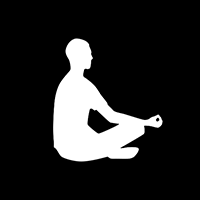
🔹 Mindfulness Apps
Headspace India: Meditation support
Calm: Stress management
MindShift: Anxiety management
🌍 International Medical Support Network
An extensive network of international medical support for addicted gamblers is available through these platforms and services.
Restricting financial transactions at the bank
You can prohibit or set limits on online transactions
You can block payments to casinos and bookmakers
Enable notifications about financial transactions and expenses to stay informed, and you can also enable notifications for a loved one

🏦 State Bank of India
Official website: https://bank.sbi
Telephone numbers: 1800 425 3800 and 1800 112 211

🏦 ICICI Bank
Official website: https://www.icicibank.com
Telephone numbers: 1800 1080 & 1860 120 777
🏦 Axis Bank
Official website: https://www.axisbank.com
Toll-free: 1800 209 5577 / 1800 103 5577
Charges applicable: 1860 419 5555 / 1860 500 5555
Mobile apps
Moment (iOS) – screen time tracking
RescueTime – activity monitoring
Space – digital wellbeing
Building a support system
Family and friends
Tell a trusted person about your limits
Ask them to check your behavior regularly
Create an action plan in case of relapse
Professional support
Regular consultations with a psychologist
Participation in support groups
Periodic medical examinations
Statistics for India
Prevalence
General population
0.5-1% of the adult population has a gambling addiction
2-3% are classified as problem gamblers
Men are 2-3 times more likely to develop an addiction
Age groups
18-25 years: 2.1% (highest risk)
26-35 years: 1.8%
36-45 years: 1.2%
46+ years: 0.7%
Regional characteristics
Highest rates: Goa (2.3%), Sikkim (2.1%)
Large cities: Mumbai (1.8%), Delhi (1.6%), Bangalore (1.5%)
Rural areas: 0.6-0.8%
Economic impact
Financial losses
Average annual loss: INR 180,000
Total industry losses: $62 billion per year
Average debt of a problem gambler: INR 450,000
Social consequences
40% of divorces are related to gambling problems
25% of suicides among men aged 25-35 are related to gambling debts
60% of problem gamblers have employment problems
Specific features of online games
Crash games (including Aviator)
35% of all online gamblers in India
Average session: 45 minutes
Average bet: INR 850
Percentage of problem gamblers: 8.5%
Mobile devices
92% play via mobile apps
Peak time: 8:00 p.m. to midnight
Average age: 28
Conclusion
Gaming addiction is a serious illness that affects not only the player but also their family and community. It is important to understand that this is a medical problem, not a character flaw or lack of willpower.
Key points to remember
Addiction is treatable — with the right approach and professional help
Early intervention is critical — the earlier treatment begins, the better the prognosis
Family support is important — recovery happens faster with the support of loved ones
Relapses are possible — they are part of the recovery process, not a failure
Immediate help
If you or someone you know needs help right now:
Emergency contacts:
Vandrevala Foundation: +91-9999-666-555 (24/7)
iCALL: 9152987821 (Mon-Sat, 10:00-20:00)
National Depression Helpline: 080-46110007
Our contact details:
Email: research@aviator-aviator.in
Response time: within 48 hours
Confidentiality guaranteed
Sources of scientific research and references
2013 American Psychiatric Association – Diagnostic and Statistical Manual of Mental Disorders, 5th edition.
2014 Potenza, M. N. – Substance-independent addictions in DSM-5 (Addictive Behaviors, 39(1), 1-2)
2016 Hing, N., et al. – Structural characteristics of electronic gaming machines and gaming satisfaction among regular players (International Gambling Studies, 16(3), 380-399).
2019 National Institute of Mental Health and Neurosciences – Mental Health Survey in India
Disclaimer
This information is for educational purposes only and is not a substitute for professional medical advice, diagnosis, or treatment. Always consult a qualified mental health professional.
Aviator Analytics Institute supports responsible gaming and is not responsible for decisions made based on this information.
Important reminder: Gambling is intended solely for entertainment purposes for persons 18 years of age or older. If gambling has ceased to be enjoyable or has become harmful, seek help immediately.
